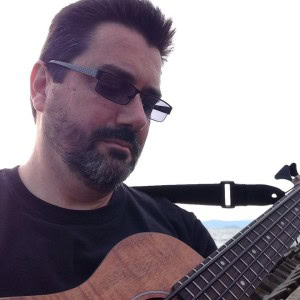AHA members are involved in all fields of history, with wide-ranging specializations, interests, and areas of employment. To recognize our talented and eclectic membership, AHA Today features a regular AHA Member Spotlight series.
E. Taylor Atkins is a Presidential Teaching Professor of History at Northern Illinois University. He lives in Sycamore, Illinois, and has been a member since 1996.
Alma maters: BA, University of Arkansas, Fayetteville, 1989; PhD, University of Illinois at Urbana-
Fields of interest: modern Japan and Korean history, ethnomusicology, popular culture, colonialism, jazz studies
When did you first develop an interest in history?
It must’ve been when I was a little guy, because in third grade I was captivated by the PBS series The Adams Chronicles and begged my parents for the companion book for my ninth birthday. I still have it. My teachers at the University of Arkansas—Henry Tsai, David Edwards, Elliott West, Elizabeth Payne, Tim Donovan—inspired me to be a historian.
What projects are you working on currently?
Teaching! In May 2015 I will take students to Japan for the first time.
Have your interests changed since graduate school? If so, how?
Very much so. I never envisioned moving from a dissertation and first book on jazz in Japan to the study of colonial Korea in the imperial Japanese imagination. Teaching survey courses in Asian and world history and trying to explain colonialism to students made me interested in writing about it. I have enjoyed the opportunities to read and teach outside of my doctoral field. I’d be bored just teaching about Japan.
Is there an article, book, movie, blog etc. that you could recommend to fellow AHA members?
Jonathan Glover, Humanity: A Moral History of the Twentieth Century
What do you value most about the history profession?
I value the shared purpose of approaching our past with honesty and a desire only to know as much truth as is possible to know. The past is so casually and readily manipulated by people with narrow—sometimes nefarious—agendas. I like being in the camp that discovers evidence and calmly speaks truth amidst such disingenuous bluster.
Why did you join the AHA?
Initially to attend the conference for job interviews. Membership was particularly beneficial in the seven and a half years I served as undergraduate advisor/curricular director in my department. I learned so much that was useful in redesigning our major, developing and teaching a methods course, and advising majors about the discipline and career paths.
Do you have a favorite AHA annual meeting anecdote you would like to share?
When my parents lived in the California Bay Area, my dad drove me up to San Francisco for the 2002 meeting, at which I had an interview. In the hotel lobby, he looked around and I guess there were just a lot of people who had a stereotypical professorial look. “Looks like a bunch of damn historians,” he quipped.
Other than history, what are you passionate about?
Music. I collect jazz, blues, funk, reggae, African, gospel, and various other genres. I play bass guitar and baritone ‘ukulele.
Any final thoughts?
My educational philosophy was best articulated by Confucius: “Learning without thought is labor lost; thought without learning is perilous” (The Analects 2:15).
This post first appeared on AHA Today.
This work is licensed under a Creative Commons Attribution-NonCommercial-NoDerivatives 4.0 International License. Attribution must provide author name, article title, Perspectives on History, date of publication, and a link to this page. This license applies only to the article, not to text or images used here by permission.




